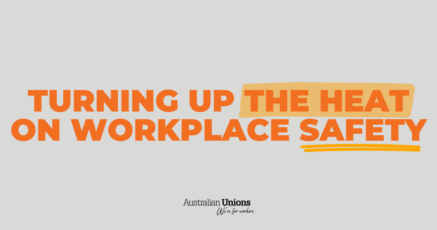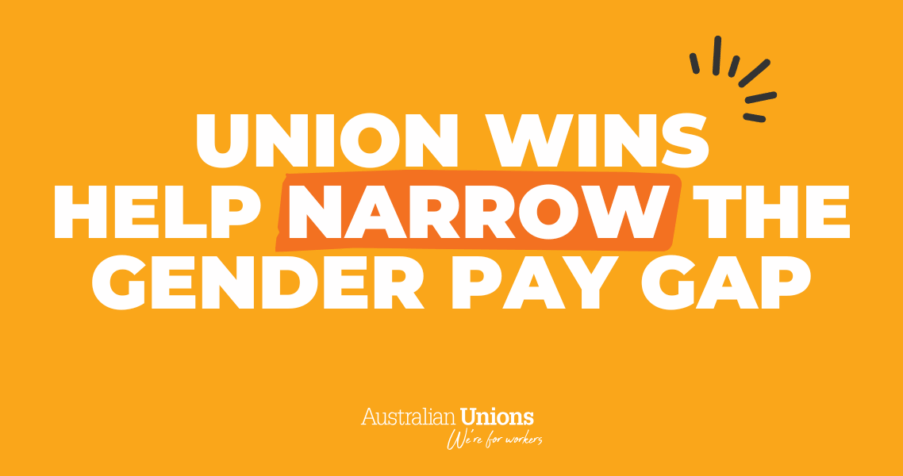Doing paid work while still in school can be a tough balance. You’re in school five days a week and then there’s homework, sport, family time…
But hey, we’ve all got to start somewhere. So whether you’ve just started your very first job or you’ve been in the job game for a while, here are the rules you should know.
And if you’re a parent of a kid who’s doing some casual work, this will be handy for you to know too.
If it’s work, then you must be paid
Just because you’re under the age of 18, doesn’t mean you should be doing work for free or “for the experience” (unless it is genuinely a volunteer role or part of your education like work experience).
You can find what wage you should be paid by, first, checking your employment contract to see whether you’re covered by an enterprise agreement or an Award. Every job is covered by either an Award or an enterprise agreement.
Second, check the exact rate of pay in the agreement or Award itself. That way, you can keep track of what you are meant to be paid. If you can’t find this information or feel a bit lost, then check in with your union.
Importantly, under the Fair Work Act, workers in some industries who are 21 years or younger can be paid less than older workers because of junior rates. These are calculated as a percentage of the full adult wage.
Despite the fact employers can hire some young workers at a cheaper rate, many dodgy bosses will still try to under pay you. If your payslip isn’t looking right, contact your union straight away as you might be dealing with wage theft.
The junior rates system is legal, but it worsens income inequality. This is all the more reason why young workers need a 7 per cent increase to the minimum wage this year.
Can you say no to shifts during school hours?
The short answer: you can refuse shifts that clash with school. However, the rules about when and how you can refuse those shifts change for each state and territory. It can also depend on how old you are and your type of employment.
To find out information for where you’re working, here is who to contact.
| Australian Capital Territory | Young Workers Advice Service You can also chat to your teacher at school and ask them to bring in the Service to run an information session for you and your classmates. |
| New South Wales | Unions NSW (Young Workers Hub) You can find NSW Young Workers Hub on Instagram and their Facebook page. You can also join the Hub’s Discord server. |
| Northern Territory | Northern Territory Young Workers Centre To speak with someone at the Young Workers Centre, contact Unions NT |
| South Australia | SA Unions |
| Tasmania | Unions Tasmania |
| Queensland | Young Workers Hub |
| Victoria | Young Workers Centre The Young Workers Centre also does school visits so chat to your teacher about having the Centre run an information session at your school. |
| Western Australia | Unions WA |
You don’t have to fake it ‘til you make it
When you’re starting out as a worker, it can feel like you have to pretend you know what’s going on until you figure it out for yourself.
Honestly, that experience doesn’t change much when you’re an adult if you don’t have the right guidance in place. But getting information about your job and your rights is a key benefit of being in a union: someone is there to answer your questions and support you in your first job.
How much should you be paid as a casual? What counts as overtime? Can your boss text you when you’re not at work? Are you in the right classification? What even is a classification? Your union can answer those questions and more.
Your union is made up of people who work in the same industry as you and know it inside-out. You can always trust your union to give you reliable information when you need it.
If you’re in your first job ever, start here with this guide on how to begin with your best foot forward.
Have a decent job? Make it even better
If you’ve been working for a while, don’t wait until something goes wrong before reaching out to your union.
Your union is also there to help make a decent workplace even better. Maybe you’d like to see mental health training happen at work? Want to figure out the best way to apply for flexible working hours? Swap around public holidays?
These are all things that your union can help you achieve.
And don’t sweat over fees. It doesn’t matter whether you’re an apprentice, contractor, casual or part-timer, many unions have lower fees for casuals and apprentices to accommodate your role. And union fees are tax deductible (i.e., you can claim your fees back when you do your tax each year). Have a chat with your union.
Cover photo credit: Jeswin Thomas on Unsplash






SHARE:
Are you a school student with a job? Here’s what you need to know.